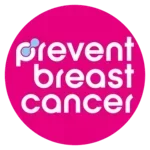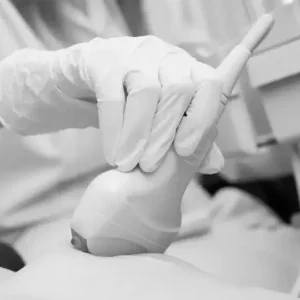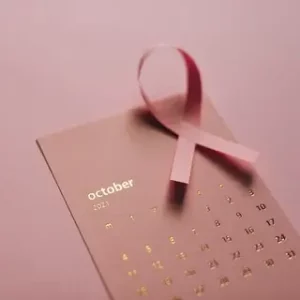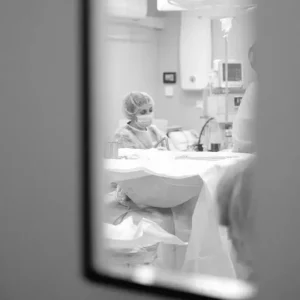
Your Risk for Breast Cancer
Genetic profile of each individual imparts a risk of developing breast cancer in their lifetime.
The same genes can also decide if your children are at risk of getting breast cancer !

Genetic profile of each individual imparts a risk of developing breast cancer in their lifetime.
The same genes can also decide if your children are at risk of getting breast cancer !
Women with Breast Cancer at age less than 50
Bilateral Breast Cancer
Triple Negative Breast Cancer
Lobular Cancer with Diffuse Gastric Cancer
Multiple Breast Cancers in same lady
Male Breast Cancer
Family History: 2 or more relatives with Breast Cancer
Family History: Breast and Ovarian Cancer
Family History: Pancreatic and Prostratic Cancers
Race: Jews
Helps estimate risk of disease recurrence after treatment. Planning for prevention of second cancer
Type of surgery planned can change with Genetic information. Medical treatments can be adjusted.

Genetic information can be used to protect children and siblings by preventive steps
Genetic counselling can reduce anxiety and help plan life. Risk reduction surgery or preventive medication.




We are a group of breast specialists, exclusively focussed on Breast diseases and breast care. Breast is a complex organ of the female body battered by female hormones and can lead from simple breast pain to a breast lump. But debilitating breast cancer can also presents as a lump.
We as a group specialise in breast pathology and are able to bring finesse to diagnosis and treatment for breast diseases.
Best Breast Care In Hyderabad.

Men with BRCA gene can get Breast, Prostrate and Pancreatic Cancer !
The BRCA gene test is a blood test that uses DNA analysis to identify harmful changes (mutations) in either one of the two breast cancer susceptibility genes — BRCA1 and BRCA2.People who inherit mutations in these genes are at an increased risk of developing breast cancer and ovarian cancer compared with the general population.The BRCA gene test is offered to those who are likely to have an inherited mutation based on personal or family history of breast cancer or ovarian cancer
As soon as you consider having any genetic test, meet with a genetic counselor to determine whether it’s appropriate for you and to discuss the potential risks, limitations and benefits of undergoing genetic testing.
The genetic counselor takes a detailed family and medical history, assesses your risk of developing cancer, discusses risks and benefits of genetic testing, and outlines your options.
Genetic counseling can help you understand what the results could mean for your health, help you decide whether genetic testing is right for you, and recommend a specific set of genetic tests based on your family history.
A positive test result means that you have a mutation in one of the breast cancer genes, BRCA1 or BRCA2, and therefore a much higher risk of developing breast cancer or ovarian cancer compared with someone who doesn’t have the mutation. But a positive result doesn’t mean you’re certain to develop cancer.Follow-up care after a positive test result might include taking specific measures to modify the type and frequency of screening for cancer and to consider procedures and medications designed to reduce your cancer risk.
A negative test result means that no BRCA gene mutation was found. A negative test result doesn’t mean you definitely won’t get breast cancer. You still have the same cancer risk as that of the general population.
Although the BRCA gene test can detect the majority of mutations in the BRCA1 and BRCA2 genes, you could have a gene mutation that the test wasn’t able to detect. Or you may be at high risk of hereditary cancer if your family carries a high-risk gene mutation that researchers haven’t yet identified.

Remember to look for breast, ovarian, male breast cancer in your father’s relatives.
The average woman with a BRCA mutation has up to 70% chance of developing breast cancer by age 80.
High ! Your risk of developing breast cancer ranges from 45 – 85% in your life time. ( Non BRCA -General population it is just 12%)
You will be put on close followup. Regular Doctor Consultations, MRI from age 25, Mammograms after 30 years is added. Once child bearing is complete, option of Removal of both breasts is suggested. After 40 years, a discussion about removal of ovaries and fallopian tubes is also suggested.
PALB2
PTEN
TP 53
CHEK 2
ATM
STK11
Genetic Counselling helps families at risk of inherited diseases understand and adapt to medical and psychological implications of the genes inherited.
One Stop Breast Clinic in Hyderabad
What can you expect when you visit our Breast Centre ?

Doctors with exclusive and focussed expertise in breast care simplify the diagnosis and can speed up the treatment. We listen to you!

Image Guided Biopsy of Breast abnormalities on Ultrasound and Mammogram to rule out issues. Discretion and reasoning in the workup.

From calcifications in breast to dense shadows on the Mammogram and ultrasound, we can differentiate the normal from abnormal!

20 years expertise helps us in offering Breast Conservation for Breast Cancer. Oncoplasty- the latest in breast surgery for aesthetically superior results.
Over 2 decades in managing breast diseases
Skill sets honed by teaching and learning
A broad exposure of a variety of clinical presentations
An exclusive team - Geneticists, counsellors, social workers, nursing & palliative team
We offer clinical examination along with detailed family history assessment to help you estimate your risk and give you a well thought out & structured pathway to take care of yourself.
Parijathamhealthcare.com